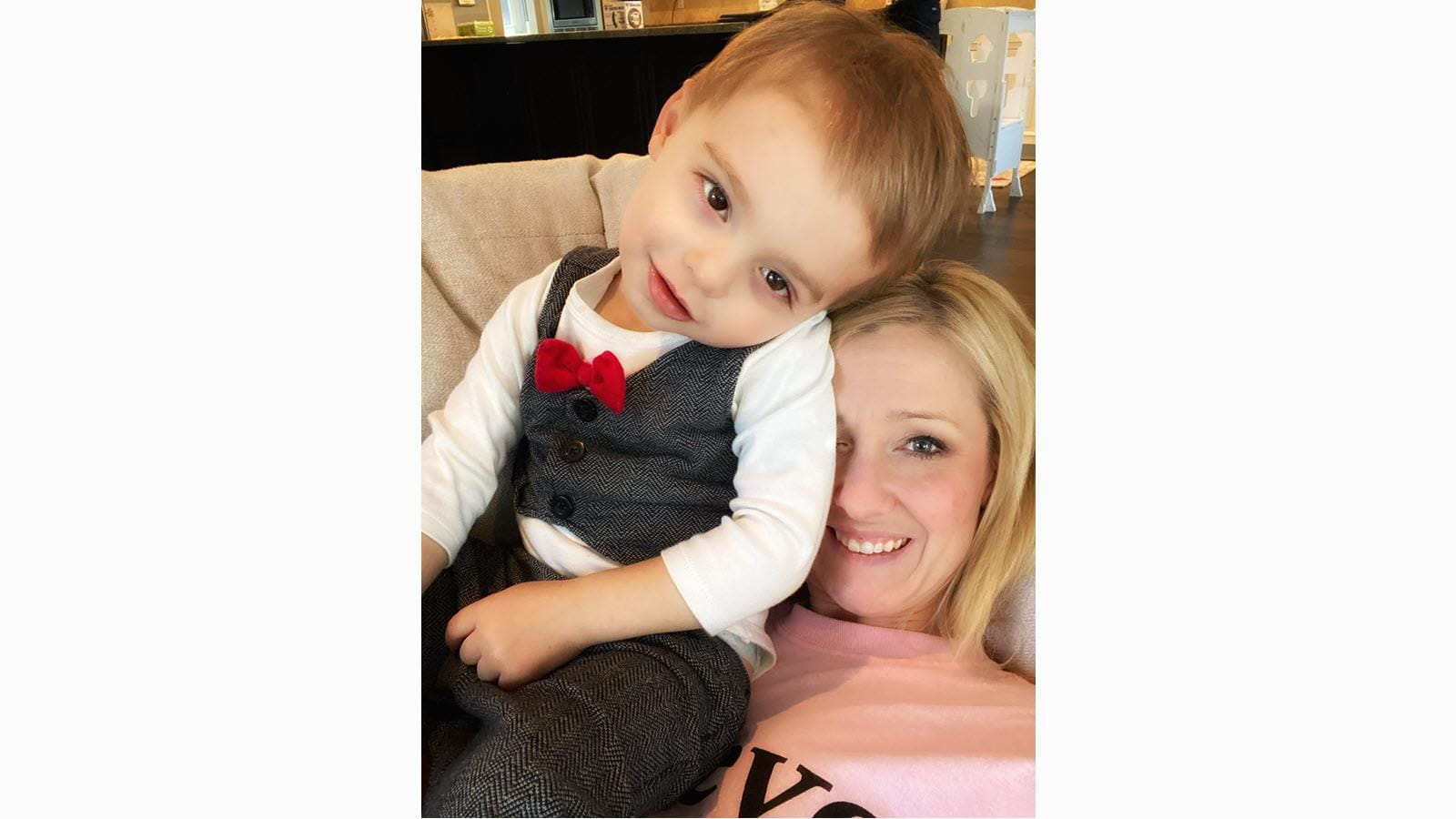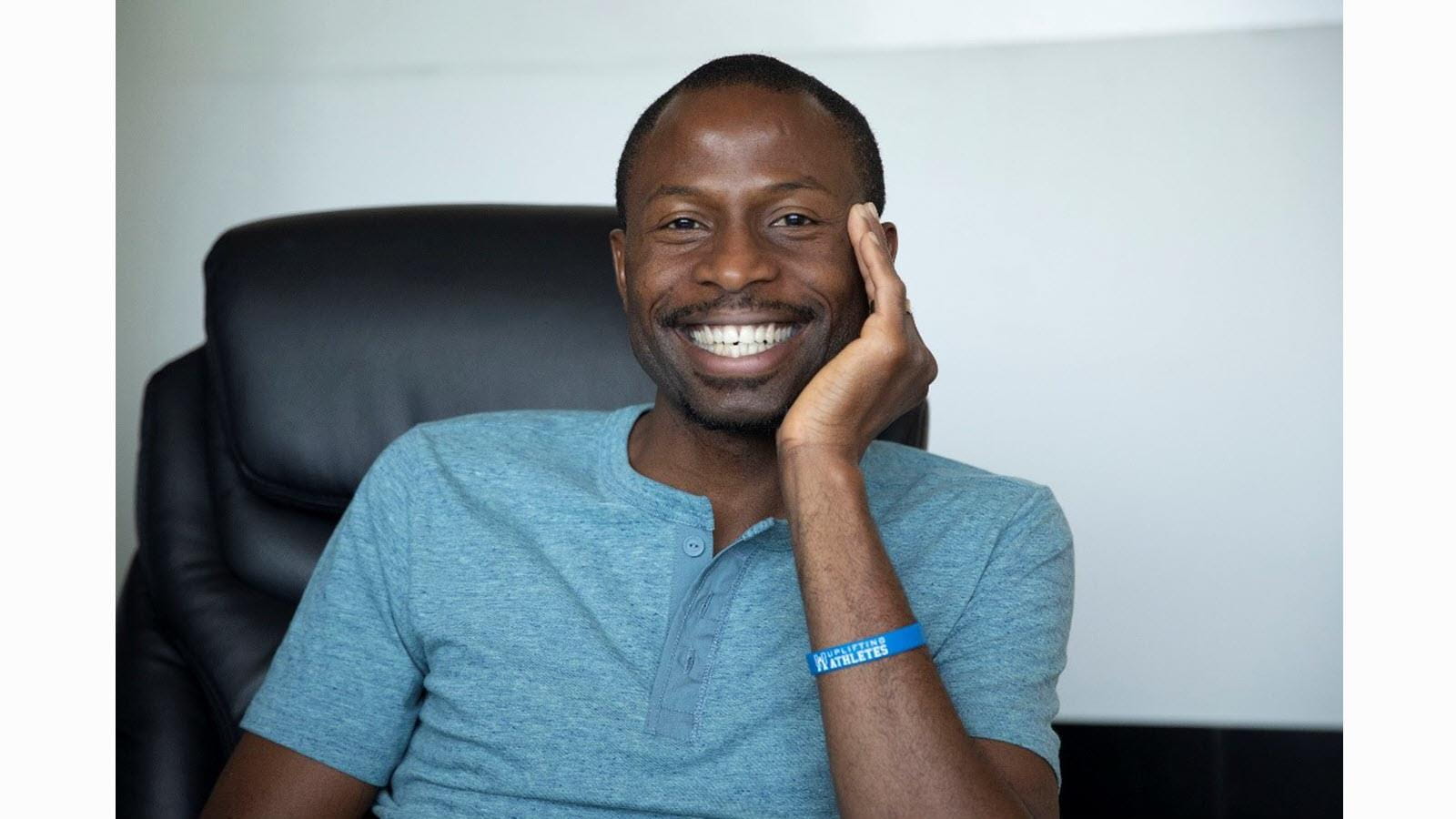When we asked Dr. Ukpong Eyo, winner of a 2021 rare disease research grant from Uplifting Athletes, for an update on his work, he explained how it all began:
With a cold call from a tireless mom whose son has a rare, currently incurable neurological condition.
It’s called SLC6A1 and she is Amber Freed, who in 2018 left her job as an equity analyst, to dedicate herself to her son Maxwell’s care and to look for answers.
“Amber is a real-life wonder woman,” Eyo said, amazed by her resolve to find and recruit researchers like himself. “It's hard to engage with Amber and not feel called into or moved by what she's doing.”

Freed, who lives in the Denver area, remembers bewildered doctors at Colorado Children’s Hospital explaining the ultrarare diagnosis and offering little hope. Maxwell, alongside twin sister Riley, had not been hitting developmental milestones.
“They told me to just go home and give him the best life you can,” she said. “It feels like rare diseases all fall in the bucket, too rare to care. Nobody can or will ever do anything about this.”
But that didn’t stop her from making sure that Maxwell “and every other child suffering from this terrible disease, gets whatever medical science is capable of.” Freed founded SLC6A1 Connect, an organization that advocates for patients and families, and has raised millions for research so far.
When Freed reached out to Eyo, he was one of 200 researchers she queried. Twenty responded. Her persistence converted a fraction of them, including Eyo who works at a University of Virginia lab, to start looking for cure. Their conversations inspired him to accept her call to action and apply to the Young Investigators Draft, a research program from nonprofit Uplifting Athletes, which partners with college and pro athletes to bring attention to rare disease. From the start, global biotech CSL has been a supporter, sponsoring the annual draft at the Philadelphia’s Lincoln Financial Field, where scientists are celebrated with the fanfare of an NFL-style draft. CSL, through business unit CSL Behring, develops medicines for people who have rare and serious diseases.
With no expectations of “getting drafted,” Eyo attended the virtual event and heard the good news from former Baltimore Ravens quarterback Trace McSorely. Eyo and SLC6A1 Connect had won.
“I'm a sports fan and I've grown to love football as well, but I never got into a real draft, you know? So, it was fun to get called upon and nice to be a part of the fanfare,” he said. “It was surreal.”
Out of his own lab in the Department of Neuroscience and the Center for Brain Immunology and Glia (BIG) at the University of Virginia, Eyo proposed a study to investigate if microglia cells – which regulate brain development – play a role in the ails of Maxwell’s condition. Eyo is now looking for differences in the microglia cells of healthy lab mice and those that have the gene mutation that Maxwell has.
“What we are finding out is that these glia cells are important in the developing brain, and they are also important in seizures, which is one of the phenotypes of people that have the disorder that Amber’s son has,” Eyo said. “The idea was that the cells that I study could be used as a target for seizure disorders.”
“He's essential,” Freed said. “Because his work is unique to the world. He is the first person to think about glia cells as it relates to SLC6A1 and to answer these outstanding questions.”
A postdoctoral researcher in Eyo’s lab, Dr. William A. Mills III, has also made a discovery: The density of these cells do appear altered in mice that share Maxwell’s mutation. He plans to share the full results with SLC6A1 later this year. The hope for all this work is that, with more investigation, it could lay the groundwork for using microglia cells as a therapeutic target for SLC6A1. The experience of researching rare disease research has been eye opening, Eyo said.
“This has increased my awareness of some of these rare diseases that need attention and has given an underrepresented researcher like myself the ability to perform these studies,” he said. “Uplifting Athletes gave me a whole new appreciation for the field of rare disease research and the families and mothers out there like Amber who are working really hard to make a difference.”
Watch a video that parents and kids recorded for Eyo.
Learn more about the Uplifting Athletes Young Investigators Draft.



